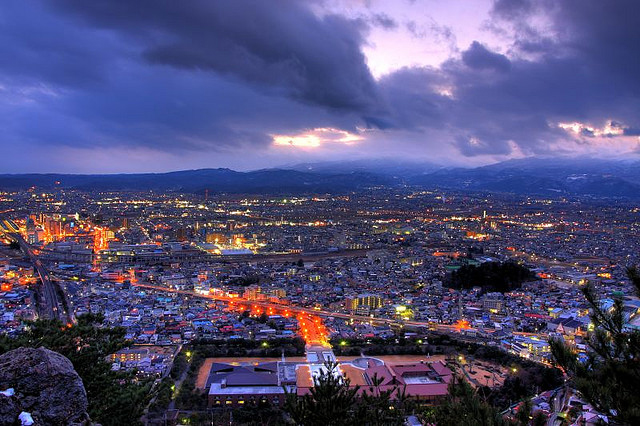Along with Fukushima, the nuclear debate’s hotting up, but there are good reasons for Australia to avoid nuclear and focus on energy conservation. [5 April 2011 | Peter Boyer]
“Still no discussion on nuclear energy Peter?” asked “Fred”, a recent Mercury website correspondent. “What are you afraid of ? Are you being open minded to all possibilities for carbon emission reduction?”
Fred went on to say that the existence of over 440 nuclear reactors in 30 countries producing 14 per cent of the world’s base-load power showed this to be mature technology.
And then the sting in the tail: “I don’t believe you have the right to claim the intellectual and moral high ground on this issue. You have given that right away by following a ‘green’ agenda with almost religious fanaticism.”
For the record, yes, I argue for a greener body politic, but I carry no card for the Australian Greens (or any other political party). You’ll have to decide about the “religious fanaticism”.
Fred’s rebuke shows how little this debate has changed since Cold War days, when idealists on one side talked breathlessly of endless supplies of nuclear power “too cheap to meter”, while their equally-idealistic opponents railed about nuclear waste poisoning our planet forever.
Those famous accidents at Three Mile Island (United States, 1979) and Chernobyl (Soviet Union, 1986) added a lot of weight to the heavy ideological baggage around nuclear energy. Now, Japan’s Fukushima event reminds us yet again of its physical dangers.
In themselves, such accidents may not be reason enough to reject nuclear. Many things we do carry potential dangers, like taking to the air in a big piece of metal. Built on the coast in an earthquake zone, Fukushima was badly located. Without the tsunami it might have emerged unscathed.
Old mindsets make us think there are enemies at every turn, trying to trip us up. If we’ve taken a stand against nuclear power, its advocates are our enemies, and the feeling is true the other way. I’ve not previously written about nuclear, yet to Fred I’m an opponent because I have a “green agenda”.
So here’s what I think. The energy crisis resulting from peak oil means we have to keep options open as long as possible. Every energy source in the mix, including renewables and natural gas, have problems attached, including waste, water, land footprint, remoteness, high cost.
Solar and wind are still very much in the mix, but large-scale renewable energy costs a lot of money, as critics of the “Beyond Zero Emissions” plan pointed out last year. Venture capital on this scale is hard to find at the best of times — more so when economies are in the doldrums.
We can drop one option. “Clean coal” is now exposed as a big-coal rort and a futile waste of public funds. In December, over muffled protests from federal resources minister Martin Ferguson, the Queensland government quietly stopped funding ZeroGen’s carbon capture and storage operation.
And then there’s nuclear. Time and the end of the Cold War may have dulled general public concern about things atomic, but not so for Dr Helen Caldicott, implacable opponent of nuclear power. Fukushima, she believes, “means the end of the nuclear industry — thank God!”
Professor Barry Brook of the University of Adelaide begs to differ. Hydro power is unavailable in most of Australia, he wrote recently in the Adelaide Advertiser, but “we have abundant uranium, and a high technology society in a geologically stable region, all perfect for the deployment of nuclear power. It’s nuclear power, or it’s climate change.”
I share Brook’s wish for the public debate to be “based on real-world evidence and robust analysis”, and I don’t think we should stop the debate. But I can’t muster his enthusiasm.
Caldicott’s concern about nuclear toxins isn’t to be taken lightly (no-one takes Caldicott lightly!), though I’m prepared to accept that new nuclear and safety technology may lessen the dangers.
But at least as troubling is nuclear’s complexity and its very high capital and operating costs — the latter rising steeply in the absence of high-grade uranium, of which we have only a few decades’ supply at current usage rates.
Expensive, complex technology that requires very rigorous safety standards demands exceptional economic, political and social stability, such as we enjoyed when the nuclear industry was on the rise, funded largely by Cold War military spending. Those times are long past.
As Fukushima has demonstrated, things can go badly wrong in a nuclear plant without a rock-solid guarantee of electricity supply. Where in the world is a continuous electricity supply guaranteed?
We’re having this discussion because no-one seems to want to curb their energy use. Whatever gizmos we employ, there’s no getting away from the fact that we only need heavy-duty energy if we continue to have heavy-duty demand.
We’re nothing if not inventive. Good ideas for more sustainable energy (like using marine algae to make biofuels and sequester carbon) will continue to crop up, and I earnestly hope that the best of them will get enough support to reach the marketplace. But technology offers no silver bullets.
Boys who love toys may not find energy conservation an attractive option, but in an increasingly uncertain world it has to be the main game.

